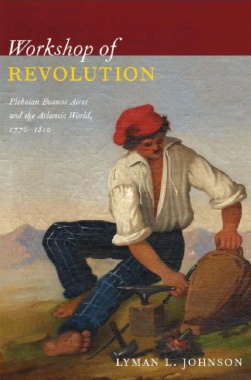The plebeians of Buenos Aires were crucial to the success of the revolutionary junta of May 1810, widely considered the start of the Argentine war of independence. Workshop of Revolution is a historical account of the economic and political forces that propelled the artisans, free laborers, and slaves of Buenos Aires into the struggle for independence. Drawing on extensive archival research in Argentina and Spain, Lyman L. Johnson portrays the daily lives of Buenos Aires plebeians in unprecedented detail. In so doing, he demonstrates that the world of Spanish colonial plebeians can be recovered in reliable and illuminating ways. Johnson analyzes the demographic and social contexts of plebeian political formation and action, considering race, ethnicity, and urban population growth, as well as the realms of work and leisure. During the two decades prior to 1810, Buenos Aires came to be thoroughly integrated into Atlantic commerce. Increased flows of immigrants from Spain and slaves from Africa and Brazil led to a decline in real wages and the collapse of traditional guilds. Laborers and artisans joined militias that defended the city against British invasions in 1806 and 1807, and they defeated a Spanish loyalist coup attempt in 1809. A gravely weakened Spanish colonial administration and a militarized urban population led inexorably to the events of 1810 and a political transformation of unforeseen scale and consequence.
- Contents
- Preface
- Introduction
- Chapter One. Plebeian City: Late Colonial Buenos Aires
- Chapter Two. The Structures of a Working Life: Masculinity, Sociability, Skill, and Honor
- Chapter Three. Remembered Scripts and Atlantic Colonial Realities: The Shoemakers and Silversmiths of Buenos Aires
- Chapter Four. Collective Obligations, Self-Interest, and Race:The Guilds of Silversmiths and Shoemakers Fail
- Chapter Five. The “French Conspiracy” of 1795
- Chapter Six. The Reproduction of Working-Class Life: Needing, Wanting, Having, and Saving
- Chapter Seven. Working-Class Wages, Earnings, and the Organization of Urban Work
- Chapter Eight. An Empire Lost: The Plebe Transformed
- Epilogue
- Notes
- Bibliography
- Index

